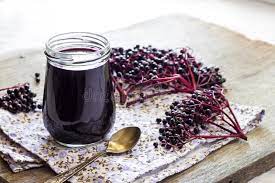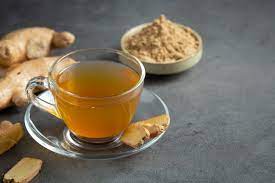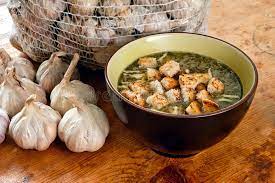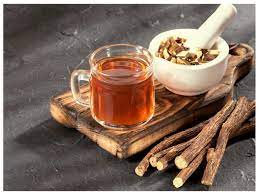
The flu, also known as influenza, is a viral infection that affects the respiratory system. It is highly contagious and can cause mild to severe illness, sometimes resulting in hospitalization. The flu typically occurs in seasonal outbreaks during the fall and winter months, but it can occur year-round. Flu affects millions of people each year. While there is no cure for the flu, treatments are available to alleviate symptoms and reduce the duration of illness. The best way to prevent the flu is to get vaccinated each year and practice good hygiene habits to prevent the spread of the virus.
Causes:
The flu is caused by the influenza virus, which can be classified into three types: A, B, and C. Influenza A is the most common type and is responsible for the majority of flu cases each year. Influenza B is less common but can still cause severe illness. Influenza C is the mildest form of the virus and typically causes mild respiratory symptoms.
The influenza virus is spread through respiratory droplets when an infected person coughs or sneezes. The virus can also be spread by touching a surface contaminated with the virus and then touching your mouth or nose.
Symptoms:
The symptoms of the flu can range from mild to severe and typically appear suddenly. Common symptoms include:
- Fever
- Cough
- Sore throat
- Runny or stuffy nose
- Body aches
- Headache
- Chills
- Fatigue
Treatment:
There is no cure for the flu, but there are treatments available that can help alleviate symptoms and reduce the duration of illness. Antiviral medications can be prescribed by a healthcare provider to treat the flu and may be most effective if taken within the first 48 hours of symptom onset.
Over-the-counter medications such as acetaminophen and ibuprofen can help relieve fever and body aches. It is also important to get plenty of rest, drink plenty of fluids, and avoid contact with others to prevent the spread of the virus.
While the flu vaccine is the best way to prevent the flu, sometimes we can still catch the virus despite our best efforts. In those cases, home remedies can be a helpful way to alleviate symptoms and speed up recovery. Here are some tips to alleviate symptoms that you can try:
- Get Plenty of Rest
Rest is crucial, your body needs time to recover, and getting enough rest can help boost your immune system. Try to get at least 8 hours of sleep each night and take naps during the day.

- Drink Plenty of Fluids Fluids keep you hydrated and loosen mucus in your throat and nose. Water, herbal tea, and clear broths are all good options. Avoid caffeine and alcohol, as they will dehydrate you.

- Use a Humidifier
Humidifier can help relieve congestion and soothe a sore throat. It adds moisture to the air, which can make it easier to breathe.

- Gargle with Salt Water
Gargling with salt water can help soothe a sore throat and reduce inflammation. Dissolve half a teaspoon of salt in a glass of warm water and gargle for 30 seconds before spitting it out.

- Take a Hot Shower
Taking a hot shower can help relieve congestion and soothe achy muscles. The steam can also help clear your nasal passages.

- Use Essential Oils
Essential oils like eucalyptus, peppermint, and tea tree oil can help alleviate congestion and provide relief from cold and flu symptoms. Add a few drops of essential oil to a diffuser or mix with a carrier oil like coconut oil and apply to your chest and neck.

- Eat Nutritious Foods
Eating a healthy, balanced diet can help boost your immune system and speed up recovery. Foods rich in vitamin C like oranges, berries, and leafy greens can help strengthen your immune system. Ginger and garlic can also help alleviate symptoms and reduce inflammation.
Herbs have been used for centuries to treat various ailments, including the flu. While there is no cure for the flu, certain herbs can help alleviate symptoms and boost the immune system.
Herbs to consider for treating the flu:

- Echinacea
Echinacea is a popular herb used to boost the immune system and reduce the severity and duration of the flu. It contains compounds that stimulate the production of white blood cells, which can help fight off infections. Echinacea can be taken in the form of tea, tincture, or capsules.

- Elderberry
Elderberry is another popular herb used to treat the flu. It has antiviral properties that can help reduce the severity and duration of the flu. Elderberry can be taken in the form of tea, syrup, or capsules.

- Ginger
Ginger has anti-inflammatory properties that can help alleviate symptoms of the flu, including sore throat and congestion. It can be taken in the form of tea, capsules, or added to soups or smoothies.

- Garlic
Garlic has antiviral and immune-boosting properties that can help fight off infections. It can be taken in the form of supplements or added to foods like soups, stir-fries, and pasta dishes.

- Andrographis
Andrographis is an herb commonly used in Ayurvedic medicine to treat respiratory infections, including the flu. It has antiviral properties and can help alleviate symptoms like fever, cough, and sore throat. Andrographis can be taken in the form of capsules or tea.

- Licorice root
Licorice root has antiviral and anti-inflammatory properties that can help alleviate symptoms of the flu, including cough and sore throat. It can be taken in the form of tea or capsules.

- Oregano
Oregano has antiviral and antibacterial properties that can help fight off infections. It can be taken in the form of supplements or added to foods like soups, stews, and pasta dishes.
Conclusion: while there is no cure for the flu, home remedies can be a helpful way to alleviate symptoms and speed up recovery, they should not be used as a substitute for medical treatment. Getting plenty of rest, drinking fluids, using a humidifier, gargling with salt water, taking a hot shower, using essential oils, and eating nutritious foods are all simple and effective ways to feel better when you are sick. If you are experiencing severe symptoms or are at high risk of complications from the flu, it is important to seek medical attention. When using herbs, it is important to follow the recommended dosages and speak with your healthcare provider before starting any new herbal supplement.
